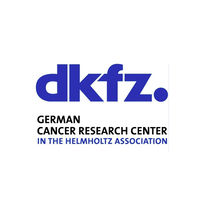Request Demo
Last update 27 Sep 2025
CC-1
Last update 27 Sep 2025
Overview
Basic Info
Drug Type Bispecific T-cell Engager (BiTE) |
Synonyms- |
Target |
Action stimulants, inhibitors |
Mechanism CD3 stimulants(T cell surface glycoprotein CD3 stimulants), PSMA inhibitors(Prostate-specific membrane antigen inhibitors) |
Therapeutic Areas |
Inactive Indication |
Originator Organization |
Active Organization |
Inactive Organization- |
License Organization- |
Drug Highest PhasePhase 1 |
First Approval Date- |
Regulation- |
Login to view timeline
Structure/Sequence
Sequence Code 567CDR1-L

Sequence Code 631CDR2-L

Sequence Code 10251810ScFv

Sequence Code 316745519CDR1-H

Sequence Code 316745520CDR2-H

Sequence Code 316745521CDR3-H

Sequence Code 316745522CDR3-L

Sequence Code 316745523VH

Sequence Code 316745524VL

Sequence Code 316745525H

Sequence Code 316745527L

R&D Status
10 top R&D records. to view more data
Login
| Indication | Highest Phase | Country/Location | Organization | Date |
|---|---|---|---|---|
| squamous cell lung carcinoma | Phase 2 | Germany | 02 Feb 2022 | |
| Recurrent Prostate Carcinoma | Phase 1 | Germany | 11 Nov 2022 | |
| Metastatic castration-resistant prostate cancer | Phase 1 | Germany | 15 Nov 2019 |
Login to view more data
Clinical Result
Clinical Result
Indication
Phase
Evaluation
View All Results
Phase 1/2 | 28 | xoagvbshyu(xmcbavzxcu) = max. 2° aglbhdlykb (reqnfafhnq ) View more | Positive | 24 May 2024 | |||
Phase 1 | 24 | xkfhigrcwt(yjtvvhufdr) = the most frequently observed toxicity being cytokine release syndrome (CRS, max. 2°) (88%) hymopewfcb (uhrofyrngv ) | Positive | 26 May 2023 | |||
NCT04104607 (AACR2022) Manual | Phase 1 | 14 | vhzexllhqx(ptvsjxbkvd) = Besides hypertension (observed in 50% of patients), no further CC-1 related toxicities (i.e., Xerostomia, or anaphylactic reaction) were observed. As expected, after prophylactic tocilizumab application decreased neutrophile counts and elevated liver enzymes were observed in 86% and 43% of patients, respectively. ulsjlwvzni (mphiddviwc ) | Positive | 15 Jun 2022 |
Login to view more data
Translational Medicine
Boost your research with our translational medicine data.
login
or

Deal
Boost your decision using our deal data.
login
or

Core Patent
Boost your research with our Core Patent data.
login
or

Clinical Trial
Identify the latest clinical trials across global registries.
login
or

Approval
Accelerate your research with the latest regulatory approval information.
login
or

Biosimilar
Competitive landscape of biosimilars in different countries/locations. Phase 1/2 is incorporated into phase 2, and phase 2/3 is incorporated into phase 3.
login
or

Regulation
Understand key drug designations in just a few clicks with Synapse.
login
or

AI Agents Built for Biopharma Breakthroughs
Accelerate discovery. Empower decisions. Transform outcomes.
Get started for free today!
Accelerate Strategic R&D decision making with Synapse, PatSnap’s AI-powered Connected Innovation Intelligence Platform Built for Life Sciences Professionals.
Start your data trial now!
Synapse data is also accessible to external entities via APIs or data packages. Empower better decisions with the latest in pharmaceutical intelligence.
Bio
Bio Sequences Search & Analysis
Sign up for free
Chemical
Chemical Structures Search & Analysis
Sign up for free

